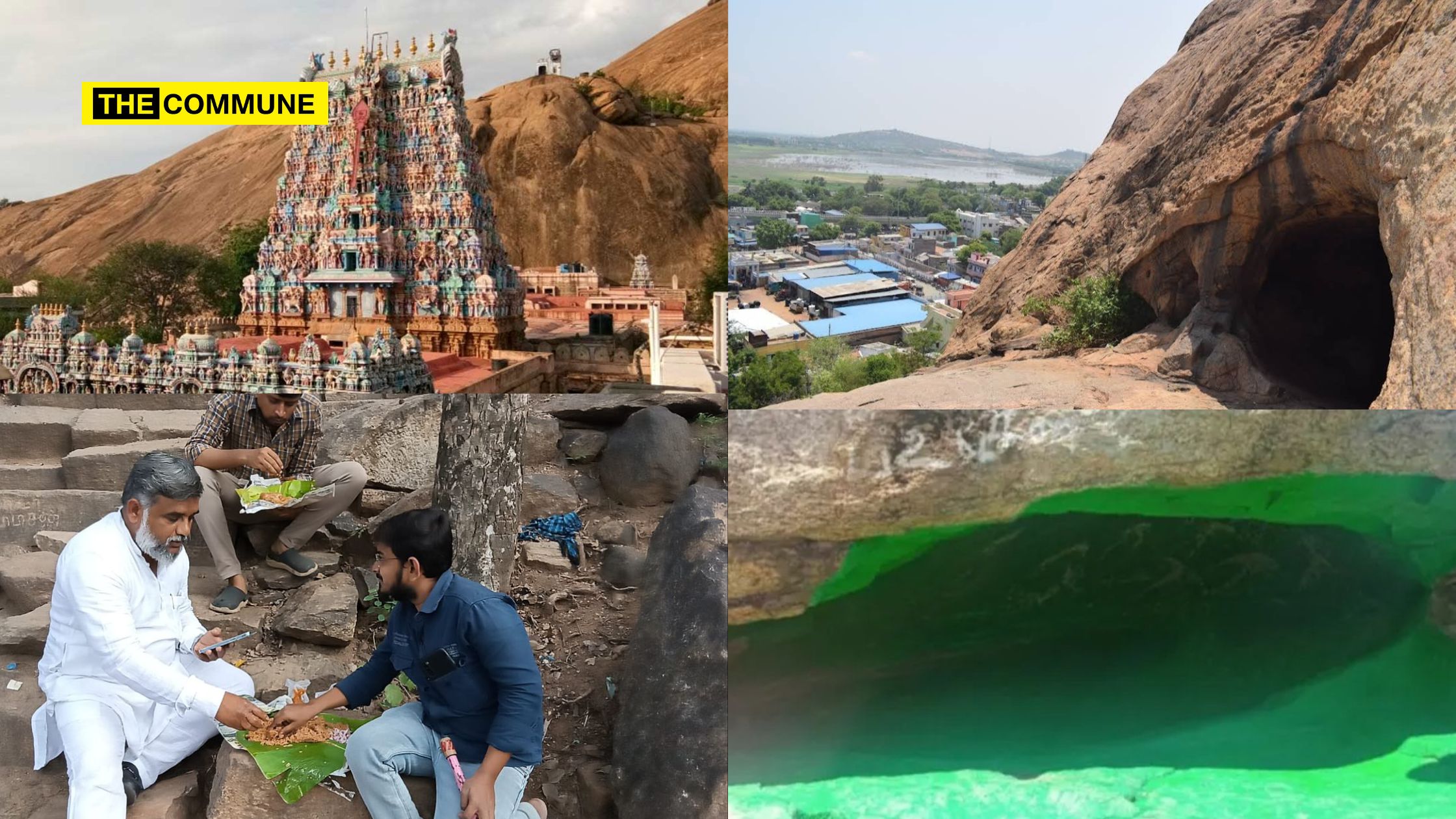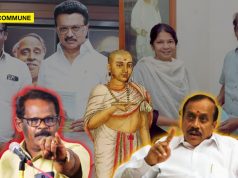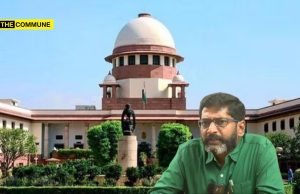
Ancient Jain caves at Thiruparankundram Hill were vandalized with green paint amid rising tensions linked to sacrilegious acts by Muslim groups.
Thiruparankundram Hill, a site of immense religious and historical significance, has become a focal point of controversy and sacrilege. Renowned as the first Arupadai Veedu (abode) of Lord Murugan, the hill is sacred to Hindus. Additionally, its western side features ancient Jain beds with Tamil Brahmi inscriptions dating back to the 2nd century BCE to 2nd century CE. Further up the hill, Jain bas-reliefs of Parsvanatha and Mahavira from the 8th to 9th century, along with the locally named “Pancha Pandava” beds, emphasize the Thiruparankundram hill’s importance to Jainism. These caves, protected by the Archaeological Survey of India (ASI), showcase images of Jain Tirthankaras, underscoring the site’s spiritual and historical legacy.
Recently, the hill has seen rising tensions as certain Islamist groups have been wantonly trying to carry out sacrilegious acts, including performing ‘qurbani’ (sacrifices of goats and roosters) at a dargah atop the hill.
Amid these tensions, a fresh incident has caused outrage: ‘unidentified individuals’ vandalized a Jain cave on the hill’s side by painting it green. The vandalism came to light after Shankar, Assistant Conservation Officer of the ASI, filed a complaint. The Thiruparankundram police have registered a case under the Ancient Monuments and Archaeological Sites and Remains Act, 1958 (AMASR Act), and the Prevention of Damage to Public Property Act, 1984 (PDPPA).
Authorities have condemned the act, calling it a targeted effort to deface a protected heritage site. An investigation is underway to identify and apprehend the culprits.
Meanwhile, in an attempt to usurp the sacred Hindu site of Thiruparankundram Temple hill and destroy its sanctity, DMK ally Indian Union Muslim League (IUML) member and Ramanathapuram MP Navas Kani, who also holds the position of chairman of the Tamil Nadu Waqf Board, shared a controversial social media post that showed Muslim individuals eating non-vegetarian biryani near the temple entrance at the foothills of Thirupparankundram Hills. He also claimed that the dargah at the Thirupparankundram Temple hill is Waqf property.
The Issue
Tensions flared on December 27, 2024, when Madurai police detained a family attempting to bring goats and roosters to the hilltop dargah for ritual sacrifice. Led by Syed Abu Dahir, a 53-year-old from Malaiyadipatti, the family protested after being stopped at the base of the hill. Their detention sparked demonstrations by over 20 local Muslims in solidarity.
On January 5, 2025, another group of Muslim protesters gathered at the hill, demanding access to the mosque for prayers. When police denied their request, the situation escalated, resulting in a brief scuffle and several detentions.
Further unrest followed the announcement of an “Equality Feast” (Samaanbhojan) scheduled for January 18 at the hilltop dargah. Social media posts indicated plans for goat and rooster sacrifices during the event. Concerned about communal violence, authorities erected barricades and conducted searches to prevent livestock from being transported to the site. When protesters were informed that animal sacrifices were prohibited, clashes erupted between Jamath members and the police, disrupting the area further.
Compounding the issue, the Social Democratic Party of India (SDPI), an AIADMK ally linked to the banned group PFI, has been accused of orchestrating these sacrilegious acts to inflame tensions.
On January 21, 2025, controversy deepened when DMK Manapparai MLA Abdul Samad conducted an unauthorized survey around the temple, allegedly to assert control over the hill. The same day, IUML leader Navas Kani reaffirmed in an interview that the dargah falls under the Tamil Nadu Waqf Board’s jurisdiction, further fueling the conflict.
Subscribe to our channels on Telegram, WhatsApp, and Instagram and get the best stories of the day delivered to you personally.




